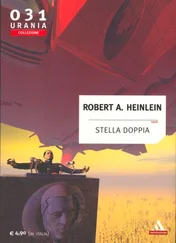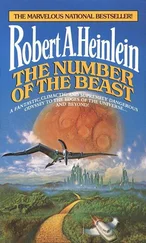Robert Heinlein - Assignment in Eternity
Здесь есть возможность читать онлайн «Robert Heinlein - Assignment in Eternity» весь текст электронной книги совершенно бесплатно (целиком полную версию без сокращений). В некоторых случаях можно слушать аудио, скачать через торрент в формате fb2 и присутствует краткое содержание. Жанр: Фантастика и фэнтези, на английском языке. Описание произведения, (предисловие) а так же отзывы посетителей доступны на портале библиотеки ЛибКат.
- Название:Assignment in Eternity
- Автор:
- Жанр:
- Год:неизвестен
- ISBN:нет данных
- Рейтинг книги:3 / 5. Голосов: 1
-
Избранное:Добавить в избранное
- Отзывы:
-
Ваша оценка:
- 60
- 1
- 2
- 3
- 4
- 5
Assignment in Eternity: краткое содержание, описание и аннотация
Предлагаем к чтению аннотацию, описание, краткое содержание или предисловие (зависит от того, что написал сам автор книги «Assignment in Eternity»). Если вы не нашли необходимую информацию о книге — напишите в комментариях, мы постараемся отыскать её.
Assignment in Eternity — читать онлайн бесплатно полную книгу (весь текст) целиком
Ниже представлен текст книги, разбитый по страницам. Система сохранения места последней прочитанной страницы, позволяет с удобством читать онлайн бесплатно книгу «Assignment in Eternity», без необходимости каждый раз заново искать на чём Вы остановились. Поставьте закладку, и сможете в любой момент перейти на страницу, на которой закончили чтение.
Интервал:
Закладка:
Blakesly added hastily, "That is for an exclusive creation, of course."
"Naturally," Van Vogel agreed briskly, and added die figure to the memorandum.
Van Vogel was ready to return, but his wife insisted on seeing the "apes," as she termed the anthropoid workers. The discovery that she owned a considerable share in these subhuman creatures had intrigued her. Blakesly eagerly suggested a trip through the laboratories in which the workers were developed from true apes.
They were arranged in seven buildings, the seven "Days of Creation.' "First Day" was a large building occupied by Cargrew, his staff, his operating rooms, incubators, and laboratories. Martha van Vogel stared in horrified fascination at living organs and even complete embryos, living artificial lives sustained by clever glass and metal recirculating systems and exquisite automatic machinery.
She could not appreciate the techniques; it seemed depressing. She had about decided against plastobiology when Napoleon, by tugging at her skirts, reminded her that it produced good things as well as horrors.
The building "Second Day" they did not enter; it was occupied by B'na Kreeth and his racial colleagues. "We could not stay alive in it, you understand," Blakesly explained. Van Vogel nodded; his wife hurried on she wanted no Martians, even behind plastiglass.
From there on the buildings were for development and production of commercial workers. "Third Day" was used for the development of variations in the anthropoids to meet constantly changing labor requirements. "Fourth Day" was a very large building devoted entirely to production-line incubators for commercial types of anthropoids. Blakesly explained that they had dispensed with normal birth. "The policy permits exact control of forced variations, such as for size, and saves hundreds of thousands of workerhours on the part of the female anthropoids."
Martha van Vogel was delighted with "Fifth Day," the anthropoid kindergarten where the little tykes learned to talk and were conditioned to the social patterns necessary to their station in life. They worked at simple tasks such as sorting buttons and digging holes in sand piles, with pieces of candy given as incentives for fast and accurate work.
"Six Day" completed the anthropoids' educations. Each learned the particular sub-trade it would practice, cleaning, digging, and especially agricultural semiskills such as weeding, thinning, and picking. "One Nisei farmer working three neo-chimpanzees can grow as many vegetables as a dozen old-style farm hands," Blakesly asserted. "They really like to work when we get through with them." They admired the almost incredibly heavy tasks done by modified gorillas and stopped to gaze at the little neo-Capuchins doing high picking on prop trees, then moved on toward "Seventh Day."
This building was used for the radioactive mutation of genes and therefore located some distance away from the others. They had to walk, as the sidewalk was being repaired; the detour took them past workers' pens and barracks. Some of the anthropoids crowded up to the wire and began calling to them: "Sigret! Sigretl Preese, Missy! Preese, Boss!
Sigret!" "What are they saying?" Martha van Vogel inquired.
"They are asking for cigarettes," Blakesly answered in annoyed tones. "They know better, but they are like children. Here 111 put a stop to it." He stepped up to the wire and shouted to an elderly male, "Hey Strawboss!" The worker addressed wore, in addition to the usual short canvas Idit, a bedraggled arm band. He turned and shuffled toward the fence. "Strawboss," ordered Blakesly, "get those Joes away from here." "Okay, Boss," the old fellow acknowledged and started cuffing those nearest him. "Scram, you Joes!
Scram!" "But I have some cigarettes," protested Mrs. van
Vogel, "and I would gladly have given them some."
"It doesn't do to pamper them," the Manager told her. "They have been taught that luxuries come only from work. I must apologize for my poor children; those in these pens are getting old and forgetting their manners."
She did not answer but moved further along the fence to where one old neo-chimp was pressed up against the wire, staring at them with soft, tragic eyes, like a child at a bakery window. He had taken no part in the jostling demand for tobacco and had been let alone by the strawboss. "Would you like a cigarette?" she asked him.
"Preese, Missy."
She struck one which he accepted with fumbling grace, took a long, lung-filling drag, let the smoke trickle out his nostrils, and said shyly, "Sankoo, Missy. Me Jerry."
"How do you do. Jerry?"
"Howdy, Missy." He bobbed down, bending his knees, ducking his head, and clasping his hands to his chest, all in one movement.
"Come along, Martha." Her husband and Blakesly had moved in behind her.
"In a moment," she answered. "Brownie, meet my friend Jerry. Doesn't he look just like Uncle Albert? Except that he looks so sad. Why are you unhappy,
Jerry?"
"They don't understand abstract ideas," put in Blakesly.
But Jerry surprised him. "Jerry sad," he announced in tones so doleful that Martha van Vogel did not know whether to laugh or to cry.
"Why, Jerry?" she asked gently. "Why are you so sad?" "No work," he stated. "No sigret. No candy. No work."
"These are all old workers who have passed their usefulness," Blakesly repeated. "Idleness upsets them, but we have nothing for them to do."
"WellI" she said. "Then why don't you have them sort buttons, or something like that, such as the baby ones do?"
"They wouldn't even do that properly," Blakesly answered her. "These workers are senile."
"Jerry isn't senile! You heard him talk."
"Well, perhaps not. Just a moment." He turned to the apeman, who was squatting down in order to scratch Napoleon's head with a long forefinger thrust through the fence. "You, Joe! Come here."
Blakesly felt around the worker's hairy neck and located a thin steel chain to which was attached a small metal tag. He studied it. "You're right," he admitted. "He's not really over age, but his eyes are bad. I remember the lot cataracts as a result of an unfortunate linked mutation." He shrugged.
"But that's no reason to let him grieve his heart out in idleness."
"Really, Mrs. van Vogel, you should not upset yourself about it. They don't stay in these pens long only a few days at the most."
"Oh," she answered, somewhat mollified, "you have some other place to retire them to, then. Do you give them something to do there? You should Jerry wants to work. Don't you. Jerry?"
The neo-chimp had been struggling to follow the conversation. He caught the last idea and grinned. "Jerry work! Sure Mike! Good worker." He flexed his fingers, then made fists, displaying fully opposed thumbs.
MrBlakesly seemed somewhat nonplused. "Really, Mrs. van Vogel, there is no need. You see " He stopped.
Van Vogel had been listening irritably. His wife's enthusiasms annoyed him, unless they were also his own. Furthermore he was beginning to blame Blakesly for his own recent extravagance and had a premonition that his wife would find some way to make him pay, very sweetly, for his indulgence.
Being annoyed with both of them, he chucked in the perfect wrong remark. "Don't be silly, Martha. They don't retire them; they liquidate them."
It took a little time for the idea to soak in, but when it did she was furious. "Why ... why I never heard of such a thingi You ought to be ashamed. You ... you would shoot your own grandmother."
"Mrs. van Vogel please!"
"Don't 'Mrs, van Vogel' me! It's got to stop you hear me?" She looked around at the death pens, at the milling hundreds of old workers therein. "It's horrible. You work them until they can't work anymore, then you take away their little comforts, and you dispose of them. I wonder you don't eat them!"
Читать дальшеИнтервал:
Закладка:
Похожие книги на «Assignment in Eternity»
Представляем Вашему вниманию похожие книги на «Assignment in Eternity» списком для выбора. Мы отобрали схожую по названию и смыслу литературу в надежде предоставить читателям больше вариантов отыскать новые, интересные, ещё непрочитанные произведения.
Обсуждение, отзывы о книге «Assignment in Eternity» и просто собственные мнения читателей. Оставьте ваши комментарии, напишите, что Вы думаете о произведении, его смысле или главных героях. Укажите что конкретно понравилось, а что нет, и почему Вы так считаете.











